
Objective Data Gathering and Analysis
This page shares suggestions for gathering and analyzing objective data when using the Education for Life program. We discuss the details of this component with the following sections:
- Data Gathering and Analysis Overview
- Why Open Source these Data Gathering and Analysis Strategies
- Ways to Contribute
- Significant Contributors to this Component
- Data Gathering and Analysis Details
- Summary
- FAQ
- Resources
RELATED PAGES
EDUCATION OVERVIEW | HOW TO USE THIS PROGRAM | OUR OPEN SOURCE PURPOSE
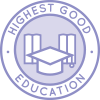
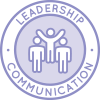
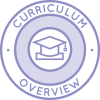
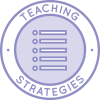
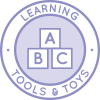
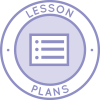
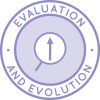
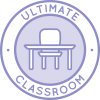
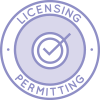
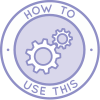
DATA GATHERING AND ANALYSIS OVERVIEW
 Objective data gathering and analysis is one way we measure the effectiveness of the Education for Life program. Our approach to this also incorporates traditionally accepted methods of evaluating a person’s understanding of Math, Science, Social Sciences, Language Arts, and to the best of our ability Arts & Trades, Technology & Innovation, and Health also. This data is for:
Objective data gathering and analysis is one way we measure the effectiveness of the Education for Life program. Our approach to this also incorporates traditionally accepted methods of evaluating a person’s understanding of Math, Science, Social Sciences, Language Arts, and to the best of our ability Arts & Trades, Technology & Innovation, and Health also. This data is for:
- Students to use for self-improvement
- Objective comparison of the program to other programs
- Objective assessment and analysis of all program components so they can be improved
- Providing what’s needed if someone wishes to transfer knowledge/records to another program
WHY OPEN SOURCE THIS
 Our goal in open sourcing the data gathering and analysis details of the Education for Life program is twofold: transparency and to provide a replicable model for other alternative and independent education programs to use too. Sharing and helping to support and spread ideas like this is directly in alignment with our Purpose and Mission, our Global-transformation Pledge, and Highest Good philosophy for open source creation, sharing, and making a difference in the world.
Our goal in open sourcing the data gathering and analysis details of the Education for Life program is twofold: transparency and to provide a replicable model for other alternative and independent education programs to use too. Sharing and helping to support and spread ideas like this is directly in alignment with our Purpose and Mission, our Global-transformation Pledge, and Highest Good philosophy for open source creation, sharing, and making a difference in the world.
WAYS TO CONTRIBUTE TO EVOLVING THIS EDUCATION PROGRAM WITH US
SUGGESTIONS | CONSULTING | MEMBERSHIP | OTHER OPTIONS
SIGNIFICANT CONTRIBUTORS TO THIS COMPONENT
Ellen Ross Kaspi: Progressive Educator and Mind/Body Modality Specialist
Jessica Wienke: Organizational and Leadership Development Consultant
Sangam Stancza: Ph.D. and P.E.
Stephanie VanderKallen: Mental Health Professional and Teacher
DATA GATHERING AND ANALYSIS DETAILS
 To assure all areas of importance are covered, we’ve designed the Education for Life program so that objective data gathering and analysis can easily be included throughout the learning process. Including this testing is optional, but we think objective data gathering and analysis is extremely helpful in evaluating both progress and the effectiveness of the program itself. Read the following sections for more on this topic:
To assure all areas of importance are covered, we’ve designed the Education for Life program so that objective data gathering and analysis can easily be included throughout the learning process. Including this testing is optional, but we think objective data gathering and analysis is extremely helpful in evaluating both progress and the effectiveness of the program itself. Read the following sections for more on this topic:
- Every Learner is Unique
- ACT/SAT Assessment System(s)
- Spectrum Books for Grade-based Subject-by-subject Study and Evaluation
- Khan Academy
- Other Standardized Tests
- Non-standardized Evaluation Methods
EVERY LEARNER IS UNIQUE
One of the most important things to remember when considering testing/data gathering and analysis, is that every Learner is unique. Different people have different strengths and learning styles and different types of tests can be easier for some and harder for others.

![]()
It is also helpful to remember that test taking is a skill in itself that can be learned and improved upon. We address test taking, reading strategies, memory strategies, and more in our Technology and Innovation curriculum and feel that learning these skills can be very helpful when implementing and preparing Learners for most evaluation processes. If your learning environment and longterm goals allow for individualization, adapting your evaluation/testing process to better meet specific needs can also be beneficial.
If a traditional educational path is desired, specifically preparing for such a path can also assist in succeeding and achieving related long-term goals. One approach to this can be seen in the ACT/SAT Assessment System(s) section below. Remember though that every individual is different and all the suggestions here may work for some and not for others.

ACT/SAT ASSESSMENT SYSTEMS
ACT and SAT tests are arguably the standard for college admission tests. As such, there are a diversity of ACT/SAT assessment and preparation applications, books, games, and other resources available. They cover in differing degrees math, reading comprehension and writing, and vocabulary. Our experience shows that these tools can be used even with grade-school children IF they are made fun and interesting enough to be age appropriate. Our opinion, if a Learner is open to learning at that level, encourage and help them.
That said, and because these tests are so widely accepted for college admission, we’ve chosen to make them a foundational part of our education model and evaluation process. In so doing we’ve found that, as stated above, if you make them fun and interesting enough, even the youngest of Learners can use these as learning and evaluation tools. Here are some suggestions we’ve found helpful for using them this way:
- These tools are optional: Only use them if you enjoy it and the person doing the learning does too.
- Apps are way more fun that books: There are a huge diversity of applications now available for preparing for and pre-testing the ACT/SAT exams. Without a doubt, the apps are way more fun and interesting than books written for the same purpose. Explore what is available and choose the ones right for you and your Learner(s).
- Use initially as learning tools: If the Learner is below the age you’d expect them to be taking these tests, we’d suggest initially using the diversity of ACT/SAT preparation tools only for learning. Testing Learners on content they have very little experience with is not recommended and can be counterproductive. Alternatively though, using content like that found in the ACT/SAT preparation tools for learning can be hugely helpful in preparing for these tests at a later time.
- Keeping it short can be helpful: For younger Learners, shorter exposure and less frequent use of the more advanced content is also recommended. For younger individuals, consider choosing and focusing on only 1 vocabulary word or Math problem each week. Incorporate this into your curriculum or the weekly lessons as much as you can, and always keep it fun.
- Tailor usage to the needs of the individual: The less mature (and/or younger) the Learner, the more fun and game-like your use of these needs to be. Challenge yourself to make it fun and relevant to the individual. In the case of the youngest Learners, consider making every question into a game, art project, or other fun activity. If you do this successfully, you’ll be surprised at how quickly even the youngest learners can pick up complex words and concepts.
- STOP if it’s not fun or interesting: If what you are doing is not fun or interesting for your Learner, change your approach or stop doing it.
- Include review: Be sure to include review of past concepts learned. This can be done formally with mini-quizzes or informally by incorporating already learned ideas into whatever your current focus is.
SPECTRUM BOOKS
The Spectrum Book series is highly recommended because it provides grade-based subject-by-subject study and evaluation. They are loaded with excellent educational content, comprehensive enough to be considered more like complete work texts than mere practice books, and organized by subject and grade. Combined with the included tests and answers, these books are a great ways to teach grade-appropriate content and then test a Learner’s knowledge of that content.

KHAN ACADEMY
“Khan Academy is a nonprofit with the mission of providing a free, world-class education for anyone, anywhere.” As of the creation of this page they offer extensive educational content covering the complete subject of Math plus Computing, Biology, Chemistry, History, Economics and Finance, Physics, and more. Educational content includes videos, articles, and tests and their online educational environment tracks progress and awards a diversity of badges as content and tests are completed.
OTHER STANDARDIZED TESTS
There are many other standardized testing options too and we’ll add here any we find that we think are especially useful. Virtually every textbook series has it’s own standardized tests that come with it and grade-based learning aids like the Spectrum Book series mentioned above also have tests built into them. We think specifically educating for the ACT/SAT tests makes sense because of how they are used for college admissions but your specific needs may warrant a different approach.
NON-STANDARDIZED EVALUATION METHODS
Non-standardized evaluation is also an option that is worth considering. We haven’t had a chance to evaluate these approaches yet but will evaluate them and report here on what we find once we do. From what we’ve read so far, the research and results are very exciting. Here are a few related articles:
- A school that employs a variety of approaches to accommodate diverse learners without academic tracking
- Article: “What Schools Could Use Instead Of Standardized Tests”
- Article: “Goodbye to Grades: Windsor Locks Schools Pioneer a New Way to Assess Students”
SUMMARY
 We consider objective data gathering and analysis as crucial to the learning and growth process. We’ve included it as an optional component of the Education for Life program and will continue to develop this page with resources and results as we evaluate and implement them.
We consider objective data gathering and analysis as crucial to the learning and growth process. We’ve included it as an optional component of the Education for Life program and will continue to develop this page with resources and results as we evaluate and implement them.
FREQUENTLY ANSWERED QUESTIONS
Q: Are all aspects of this component necessary?
We consider all aspects listed above as important, but how a person or organization chooses to use them is up to that individual or group. To maximize the flexibility and application options, all components are designed to be usable in combinations, as part of the complete One Community Education for Life program, or as stand-alone components.
Q: What if I have my own evaluation system that I like better, can I use that instead?
Of course! All aspects of the Education for Life program are designed for use in any educational environment and with or without inclusion of any other aspect of the program.
OTHER RESOURCES
We're building a resource section. Click here if you have a suggestion or resource for this page.
OPEN SOURCE SUBJECT RESOURCES (click icons for complete pages)
OPEN SOURCE CURRICULUM OUTLINES (click image for summaries and links to complete pages)
CARE
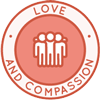
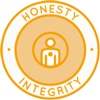
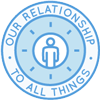
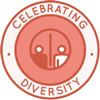
SHARE
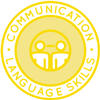
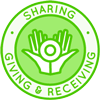
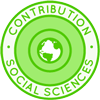
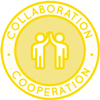
PLAY
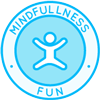
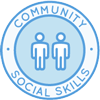
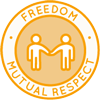
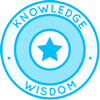
OPEN SOURCE TEACHING METHODOLOGY SUMMARIES
Montessori | Waldorf | Orff | Reggio | Multi-Intelligence | Bloom's Taxonomy | Study Tech | I-WE
INDEX OF ALL THE ONE COMMUNITY OPEN SOURCE LESSON PLANS
THE WORLD'S LARGEST ONLINE FREE EDUCATION RESOURCE ARCHIVE
RELATED CONTENT AND OTHER RELATED RESOURCES
We're building this resource section. Click here if you have a suggestion or resource for this page.
- Spectrum Book series
- Khan Academy
- A school that employs a variety of approaches to accommodate diverse learners without academic tracking
- Article: “How Should We Measure Student Learning? 5 Keys to Comprehensive Assessment”
- Article: “What Schools Could Use Instead Of Standardized Tests”
- Article: What Are Some Types of Assessment?
- Article: “Formative and Summative Assessments in the Classroom”
- Article about Checking for Learning
- Article: “Goodbye to Grades: Windsor Locks Schools Pioneer a New Way to Assess Students”
- About Expeditionary Learning Schools – A Resource of Resources
- Send us your ideas
 One Community
One Community


